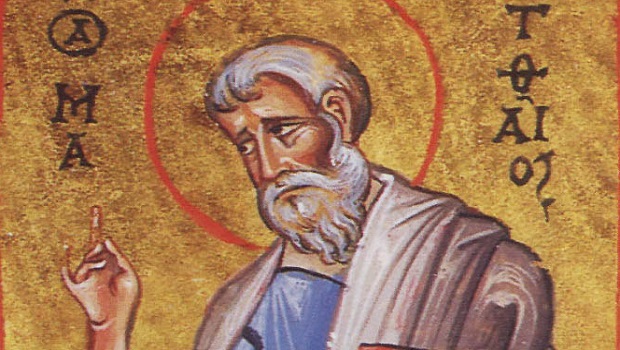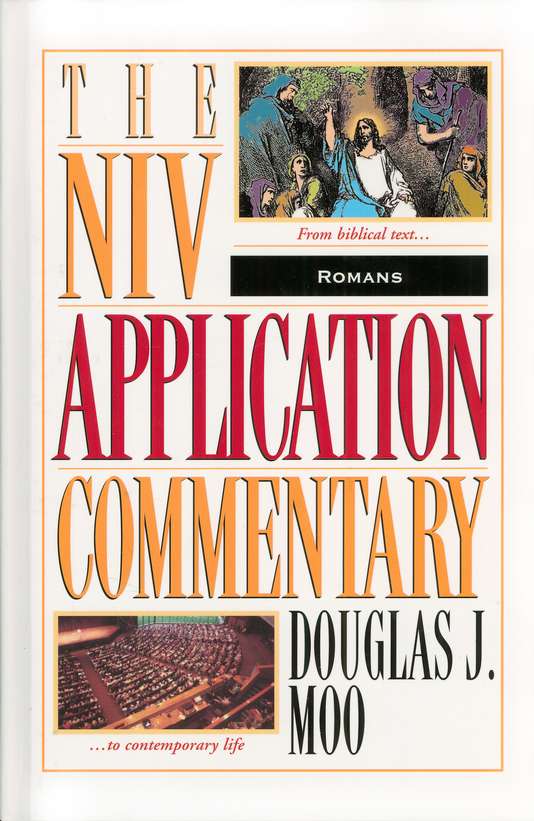
This is a paper I wrote in the fall of 2013 for a seminary class I took on the Gospel of Matthew. I learned a lot doing research for this assignment. I think it turned out well. Enjoy!
***************************************************************************
I. Introduction
The purpose of this paper is to present a moderately detailed overview of the major theme of “The Kingdom of Heaven” as it is presented throughout the Gospel of Matthew.
N.T. Wright, in a lecture given at the Inter Varsity Press Conference in January 1999, stated that the Kingdom of heaven is “The rule of heaven; that is, the rule of God, being brought to bear in the present world.” Turner (2008: 42) explains that kingdoms in general require “a ruler, those who are ruled, the exercise of that rule, and a realm in which the rule occurs.” According to Beasley-Murray (1992: 19), it refers to “the fulfillment of the promises of God in the OT of the time when God puts forth his royal power to end injustice and oppression by this world’s evil powers and to establish his rule of righteousness, peace and joy for humanity – in a word, to fulfill his purpose in creating the world.” Let us see how this rule of God plays out.
II. Where the Theme Occurs
Turner (2008: 37) asserts that the term kingdom of heaven is clearly at the very heart of Matthew’s Gospel, occurring 32 times. John the Baptist proclaims, “Repent, for the kingdom of heaven has come near” (3:2). Jesus used the same words in 4:17, and instructed His disciples to give this exact same message in 10:7. Jesus mentions it repeatedly in the Sermon on the Mount (5:3, 10, 19 (twice), 20, and 7:21). In the narrative of the centurion, Jesus spoke of an eschatological feast “with Abraham, Isaac and Jacob in the kingdom of heaven” (8:11). His parables in Matt. 13 illustrate what the kingdom of heaven is like (v. 24, 31, 33, 44, 45, 47, and 52) as well as the parables in 18:23, 20:1, 22:2, and 25:1. In addition, Jesus taught that little children are role models if you want to be great in the kingdom of heaven (18:1-4, 19:14).
III. Why Matthew Uses the Term
A quick check with an online search tool or a concordance will confirm that the phrase kingdom of heaven is found only in Matthew, while the term kingdom of God is used frequently in Mark and Luke. According to Turner (2008: 38-39), some (but not all) dispensationalists have argued that there are several eschatological distinctions to be made between the kingdom of God versus the kingdom of heaven, but that appears to be doubtful and unnecessary. To refute this idea, he states that in Matt. 19:23-24 the kingdom of heaven (v. 23) and kingdom of God (v. 24) are presented synonymously. Both phrases are also used in parallel passages (cf. Matt. 13:31 & Mark 4:30; Matt. 19:14 & Luke 18:16). Turner rightly concludes, “despite various arguments to the contrary, there is ample evidence that the kingdom of heaven and the kingdom of God are identical.” Ladd (1986: 24) concurs: “the simple fact is that they are quite interchangeable.”
So, why does Matthew say it this way? Turner (2008: 39) states the reason Matthew consistently chose the phrase kingdom of heaven was that he was using a literary device called a metonymy. Kaiser and Silva (2007: 335) define it as “a figure of speech whereby a word is changed from its literal meaning to a sense other than its referent, but one that is associated with it.” Blomberg (1992b: 73) states the phrase “kingdom of heaven” is a circumlocution, or indirect manner of speaking. He adds that it may also refer to the idea that “all power and authority in heaven are given to Jesus.” Turner (2008: 41-42) goes on to say that it “avoids mentioning the name of God by containing a word that is readily associated with God. This would fit with Matthew’s Christian Jewish audience, since it would reflect special piety for the divine name. . . So the expression ‘kingdom of heaven’ is part of a general pattern centering on Matthew’s conception of the earth as humanity’s abode and heavens as the abode of God and God’s angels.”
Gundry (1981: 137) provides a few alternate views. He states, “On the other hand, Matthew does not hesitate to use God’s name elsewhere, so perhaps ‘kingdom of heaven’ reflects Daniel 2:44 and accentuates the majesty of God’s kingdom, as in that passage. Jesus may have used both phrases, His choice depending on the audience and on the emphasis He wished to give.” This seems more than plausible. However, Gundry submits another possibility, that Jesus actually used the phrase, “kingdom of heaven”, but Mark and Luke translated it into the “kingdom of God” because their Gentile audience may not have understood that heaven’s kingdom implied God’s. He later points out that it is more likely it was the other way around, and that Matthew changed the word in his Gospel for emphasis as described previously.
IV. Key Words Used in the Theme
Matthew does use the more popular phrase kingdom of God several times (12:28, 19:24, 21:31, 43). It is not entirely apparent why. Turner (2008: 39, 42) suggests that they are most likely mere variations of literary style. In one of these texts in particular, he concludes: “Perhaps ‘kingdom of God’ is used in 12:28 because of the previous mention of the Spirit of God earlier in the verse.” In 19:24, it is quite interesting because Jesus uses kingdom of heaven in verse 23, illustrating that the terms are indeed synonymous.
On fifteen occasions, Matthew uses the word kingdom all by itself, as a shortened form of the same concept. It generally has a similar meaning; of “heaven” or “of God” clearly seem to be implied in most cases. Examples include: Jesus preaching the “good news of the kingdom” (4:23 and 9:35), the Lord’s Prayer, “your kingdom come” (6:10), Jesus’ admonition to “seek first his kingdom” (6:33), His mention of non-believers, “subjects of the kingdom,” who will be thrown outside (8:12), Jesus’ explanation of the meaning of the parables of the sower (13:19) and the weeds (13:38, 43), and Jesus’ charge to the disciples regarding preaching “the gospel of the kingdom” to the whole world (24:14). Ladd (2001: 657) indicates: “The kingdom of God is also the kingdom of Christ. Jesus speaks of the kingdom of the ‘Son of Man’ (13:41, 16:28).” There are a few exceptions where the divine kingdom is not referred to at all: (4:8, kingdoms of the world; 12:25, kingdoms divided; 12:26, Satan’s kingdom; 24:7, kingdom against kingdom).
Another word of a similar nature that Matthew used quite frequently is king, which, as Turner (2008: 38) points out, occurs over 20 times. Six instances refer to God the Father (5:35, 18:23; 22:2, 7, 11, 13); eight refer to Jesus (2:2; 21:5; 25:34, 40; 27:11, 29, 37, 42). King Herod is mentioned in 2:1; in 2:2, the magi see Jesus as a much more significant ruler, as king of the Jews. Turner (2008: 79) points out the obvious contrast between Herod’s kingship, which is “merely a political office” and that of Jesus, who is like David (1:6), having been given by God a “genuine and legitimate” kingship. Radmacher (1999: 1136) states that although the Jewish leaders did not accept Jesus’ identity as king, Gentiles like the magi did at His birth, and the Romans did in a sign above the cross at His death, “This is Jesus, the king of the Jews” (27:37).
V. Related Themes or Ideas
There are several related themes throughout the Gospel. Matthew often points out the authority of Jesus. It set Him apart from the Jewish teachers of the Law (7:28-29; 21:23-27) and gave Him the ability to forgive sins (9:6, 8). Matthew tells of the Roman centurion, how he was both under authority and in it, as was Jesus (8:3-13). Matthew mentions that Jesus had divine authority over storms (8:26-27). He also gave authority to His disciples to heal and drive out demons (10:1), which He Himself obviously had (8:28-34). He declared Himself to be Lord of the Sabbath (12:8). After he was raised, he said He had authority over all things (28:19).
Matthew recorded several instances where Jesus stated that He will be responsible for making decisions at the judgment day (7:21-23, 11:22, 24, 13:41, 42, 16:27, 25:31-34), implying that He is and will be equal with God in heaven. In a similar fashion, Jesus’ teaching on the kingdom was also reflected in many references to other eschatological events to take place in the future kingdom, such as feasts (8:11 and 26:29), His second coming (10:23, 16:28, 25:30), and His eternal reign (19:28, 20:21).
Matthew contrasts the polar opposite of God’s kingdom as the kingdom of Satan, referring to his current (then and now) authority or rule over the world in Jesus’ temptation in 4:8-9 and in His discussion with the Pharisees in 12:26. Ladd (1986: 26) indicates that the Gospels commonly refer to “two ages: this age and the age to come. . . This age is the time of sinfulness, evil, and rebellion against God; the age to come will see the perfect establishment of God’s rule in the world and the purging of all sin, evil, and rebellion. . . . Satan is the ‘god of this age’ (2 Cor. 4:4)” Ladd concludes, “From one point of view, the theology of the entire NT can be understood in terms of a titanic conflict between God and Satan, between the powers of light and the hosts of darkness. . . This divine victory will be achieved only in the age to come.”
VI. Different Ways Matthew Uses the Theme
John preached a message of repentance because the kingdom of heaven “had come near” (NIV); was “at hand” (KJV, RSV, and ESV). It was used again when Jesus began to preach and then when He sent His disciples out to preach. The fact that God’s rule in heaven was now going to be manifested on earth through the Lord Jesus Christ required a response of submission to the King. Saucy (1994: 177) agrees, stating that “the message of John, Jesus, and the disciples associated the kingdom with a demand. Given the coming lordship of God in judgment, there is only one task for humanity: repent.” Saucy (1994: 179, 182) also indicates that early in Jesus’ ministry, it becomes apparent that the preaching of the good news of the kingdom was tied to “the promised hope of the Old Testament. . . The kingdom message of John, Jesus, and the disciples in Matthew 1-10 was the same kingship of Yahweh called for in the Old Testament.”
When Jesus mentioned the kingdom several times in His Sermon on the Mount (5:3, 10, 19, 20; 7:21), He was again highlighting changing ones values and priorities. Youngblood (1995: 730) emphasizes: “His ethical teachings, for example, cannot be understood apart from the announcement of the kingdom. They are ethics of the kingdom; the perfection to which they point makes no sense apart from the present experience of the kingdom.” Later, Jesus would emphasize a shift from external to internal righteousness (e.g., 5:21-22, 27-28). Ladd (2001: 659) agrees: “The righteousness of the kingdom is an inner, absolute righteousness (5:20, 48).”
Gundry (1981: 138) observes that Jesus put most of His teaching about the kingdom of heaven in parables. Through these parables, especially in Matthew 13, Jesus showed how very different this new divine kingdom on earth would be, in both the present and the future, in contrast to what the Jewish leaders had been expecting and teaching. Not all could enter this kingdom; they had to possess a righteousness greater than the Pharisees (5:20), do God’s will (7:21), and have the humility of a child (18:4). It would start out small but grow immensely (13:31-32). There were secrets of the kingdom (13:11) that only Jesus’ followers would see. Saucy (1994: 182) comments, “The kingdom of God appears in new terms as a ‘mystery.’” Gundry (1981: 138) explains, “Jesus designed the parables of the kingdom to obscure the truth in figurative language from non-disciples who had refused to heed His plain talk, as well as to illustrate the truth for disciples, to whom He explained at least the more elaborate parables.”
Most importantly, Matthew presents this crucial theme as both a present and a future reality. The concept is commonly expressed as, “already, but not yet”. Carson (1994: 4) reminds us that this messianic kingdom (which had already begun) was the fulfillment of OT prophetic hopes. Blomberg (1992b: 73) teaches that the verb used in Matt. 3:2 that is translated “is near” is better put as “has drawn near”, implying that the kingdom had arrived decisively. Beasley-Murray (1992: 20) indicates that when Jesus said His kingdom was “near” (4:17) He was referring to “the beginning of the sovereign action of God that brings salvation, the end of which will be a transformed universe.” He suggests the word “inauguration” is appropriate when speaking of the kingdom. Jesus’ acts of compassion such as healing the sick, raising the dead, as well as other miracles, testified to the fact that He had kingdom authority and that His kingdom was here and now (cf. Matt 11:5, 12:28). Gundry (1981: 137) added that with respect to Jesus’ casting out demons (Matt 12:28), “Jesus began to say the kingdom had already come . . . God’s rule was invading the world in the person and activity of Jesus.” Beasley-Murray (1992: 22) concurs: “God is fulfilling these works of the kingdom in and through Jesus.”
In contrast to the present reality of the kingdom, Ladd (1986: 24) reminds us that “The coming of God’s kingdom is an eschatological event when the kingly reign of God, which is His de jure, will be manifested on earth de facto, so that His will is done on earth as it is in heaven.” In addition, he states that many of Jesus’ messages point to the kingdom “as the eschatological order to be established when God manifests His kingly rule. In such sayings, the kingdom is interchangeable with the age to come.” (See Matt 8:11.) Ladd (2001: 658) describes: “When the Son of Man comes in his glory, he will sit on the throne of judgment. The wicked will suffer the condemnation of fire; the righteous will ‘inherit the kingdom’” (See 25:31-46; 13:36-43; 19:28.)
Beasley-Murray (1992: 24) is quick to point out that the beatitudes in Matthew 5, “primarily have in view the future kingdom . . . The beatitudes thus are revelations of the riches of the grace that, experienced in the present, will be known to the full in the unveiling of the glory of the consummated kingdom of God.” However, Blomberg (1992a: 34) disagrees, seeing the beatitudes as “balanced between present and future aspects.” Gundry (1981: 138) adds plainly, “Jesus taught both present and future forms of the kingdom.” Turner (2008: 42) wisely summarizes by stating that the present aspect of the kingdom of heaven seems to emphasize the dynamic exercise of God’s rule here and now, whereas the future aspect focuses on the physical realm of the kingdom of heaven at the consummation.
Closely related is the debate over whether the kingdom is rule or realm. Blomberg (1992a: 31) observes that “Beasley-Murray rightly defines the kingdom more as a reign than a realm, more as a power than a place.” Blomberg (1992b: 74) declares, “The kingdom is not currently a geographical entity, but it manifests itself in space and time in the community of those who accept the message John and Jesus proclaimed.” Turner (2008: 43) strongly agrees: “Insistence that the kingdom is essentially a concrete realm leads inevitably to viewing it as strictly future as well, and this will not do in Matthew.” (See 3:2, 4:17, and 10:7). Turner later adds, “the kingdom exists as a microcosm today and as a macrocosm when Jesus returns.”
Ladd (1986: 24) explains that biblical scholars have had different opinions on whether the basic meaning of the kingdom of God refers to “an ‘abstract’ idea of God’s rule or reign, or a ‘concrete’ idea of the realm over which He will reign – in this case, the age to come.” Ladd complicates matters – “A future rule, a present rule; a future realm, a present realm; eschatology and history: this is the rather confusing picture presented in the Gospels.” He states that those who were liberal in theology minimized the eschatological considerations and focused on Jesus’ ethical message; others did the opposite. However, Ladd concludes that most scholars have accepted both present and future viewpoints and combine them in some fashion, recognizing positive components from both. Turner (2008: 107) counsels us: “Instead of thinking of the kingdom as a concrete entity that is either present or future, on should view it as gradually and dynamically exerting its power through the words and works of God’s messengers.”
VII. Summary of Matthew’s Use of the Theme
The announcement of the arrival of the kingdom of heaven by John the Baptist and Jesus indicated a new thing had come; it is both discontinuous and continuous with the Old Covenant. We see a similar message in the short parable found in Matt. 13:51. Jesus, with the authority given to Him by His heavenly Father also said numerous times in the Sermon on the Mount, “You have heard that it was said . . . but I tell you . . .” Jesus’ arrival clearly inaugurated a brand new way in which God would forever deal with His people; the birth of His Son, Immanuel, who is God with us (1:23) changed all the rules. The ruler of this kingdom was right here among us, the Word made flesh (John 1:14). However, Jesus was also the fulfillment of the Abrahamic, Mosaic, and Davidic covenants, and embodied the Messianic hope of the Jewish nation.
The kingdom of heaven, experienced here and now, is defined by a portion of Jesus’ model prayer is this: “Your will be done on earth as it is in heaven” (6:10). It also points to a time and a place in the future when Jesus returns in glory, and believers will see the beautiful picture that John paints in Rev. 11:15, and is sung so well in Handel’s Messiah: “The kingdom of the world has become the kingdom of our Lord and of his Christ, and he will reign for ever and ever.” Ladd (1986: 27) provides this observation: “In the mission of Jesus, God has entered into history in His kingly power to defeat to defeat the powers of evil and to bring to people a foretaste of the blessings of the eschatological kingdom while they still live in the old age.”
VIII. Impact on our Lives and Ministries
The theme of the kingdom of heaven has greatly impacted the way I think about Christianity and live out my faith daily. It contains foundational truths, such as: that Father, Son, and Holy Spirit are here working among us, are in charge; I am to be completely subject to their authority; ultimately their kingdom is not of this world. To be given the knowledge of the secrets of this kingdom is a gift I do not take for granted. It is only by God’s grace that I am a member of this kingdom now and look forward to an eternity worshipping at His throne.
Being a son of the kingdom of heaven presents me and my fellow believers with huge individual responsibilities: to be humble, to be pure in heart, and to sincerely obey my King. I need to be ready for His return. I need to remember that when He returns, there will be a great eschatological reversal, where the first shall be last and the last shall be first and evil will die.
This kingdom of which I am a part consists of my brothers and sisters in Christ around the world – the church. Blomberg (1992a: 35) challenges most conservative evangelicals with a comment on the kingdom as a community: “If it is important to stress the present, powerful activity of the kingdom, first in Jesus and then individually in the lives of his followers, surely it is even more important in an age and culture of radical individualism to stress the corporate aspects of the kingdom.” There is a lot for the church to do in terms of preaching and being the good news to a lost and dying world that will come to an end. Ladd (2001:660) reminds us of our ultimate purpose: “When the church has proclaimed the gospel of the kingdom in all the world as witness to all nations, Christ will return (Matt. 24:14) and bring the kingdom in glory.”
Bibliography
Beasley-Murray, G.R., “The Kingdom of God in the Teaching of Jesus,” JETS [serial online]. March 1, 1992; 35(1): 19-30. Available from: ATLA Religion Database with ATLASerials, Ipswich, MA. Accessed November 21, 2013.
Blomberg, Craig L., “A Response to G.R. Beasley-Murray on the Kingdom,” JETS [serial online]. March 1, 1992; 35(1): 31-36. Available from: ATLA Religion Database with ATLASerials, Ipswich, MA. Accessed November 21, 2013.
Blomberg, Craig L., The New American Commentary: Matthew. Nashville: B&H Publishing Group, 1992.
Carson, D.A., Zondervan NIV Bible Commentary (vol. 2). Grand Rapids: Zondervan, 1994.
Gundry, Robert H., A Survey of the New Testament. Grand Rapids: Zondervan, 1981.
Kaiser, Walter C., Jr., and Silva, Moises, Introduction to Biblical Hermeneutics. Grand Rapids: Zondervan, 2007.
Ladd, G.E., “Kingdom of Christ, God, Heaven.” Pages 657-660 in Evangelical Dictionary of Theology. Edited by Elwell, Walter A. Grand Rapids: Baker Academic, 2001.
Ladd, G.E., “Kingdom of Heaven.” Pages 23-29 in The International Standard Bible Encyclopedia (vol. 3). Edited by Bromiley, Geoffrey W. Grand Rapids: Eerdman’s, 1986.
Radmacher, Earl D., ed., Nelson’s New Illustrated Bible Commentary. Nashville: Thomas Nelson, 1999.
Saucy, Mark, “The Kingdom-of-God Sayings in Matthew,” Bibliotheca Sacra [serial online]. April 1, 1994; 151(602): 175-197. Available from: ATLA Religion Database with ATLASerials, Ipswich, MA. Accessed November 21, 2013.
Turner, David L. Matthew: Baker Exegetical Commentary on the New Testament. Grand Rapids: Baker Academic, 2008.
Wright, N.T. “Jesus and the Kingdom”, lecture given at the Inter Varsity Press Conference, January 1999. Online: http://ntwrightpage.com/.
Youngblood, Ronald F., ed., Nelson’s New Illustrated Bible Dictionary. Nashville: Thomas Nelson, 1995.

Master Sergeant Russell E. Gehrlein (U.S. Army, Retired) is a Christian, husband of 38 years, father of three, grandfather of four, blogger, and author of “Immanuel Labor – God’s Presence in our Profession: A Biblical, Theological, and Practical Approach to the Doctrine of Work”, published by WestBow Press in February 2018. He received a B.S. in Mathematics from Colorado State University in 1980 and an M.A. in Biblical Studies from Grand Rapids Theological Seminary in 2015. He is also a former junior/senior high school math and science teacher and youth pastor. Russ currently works as a Department of the Army civilian at Fort Leonard Wood, Missouri.



